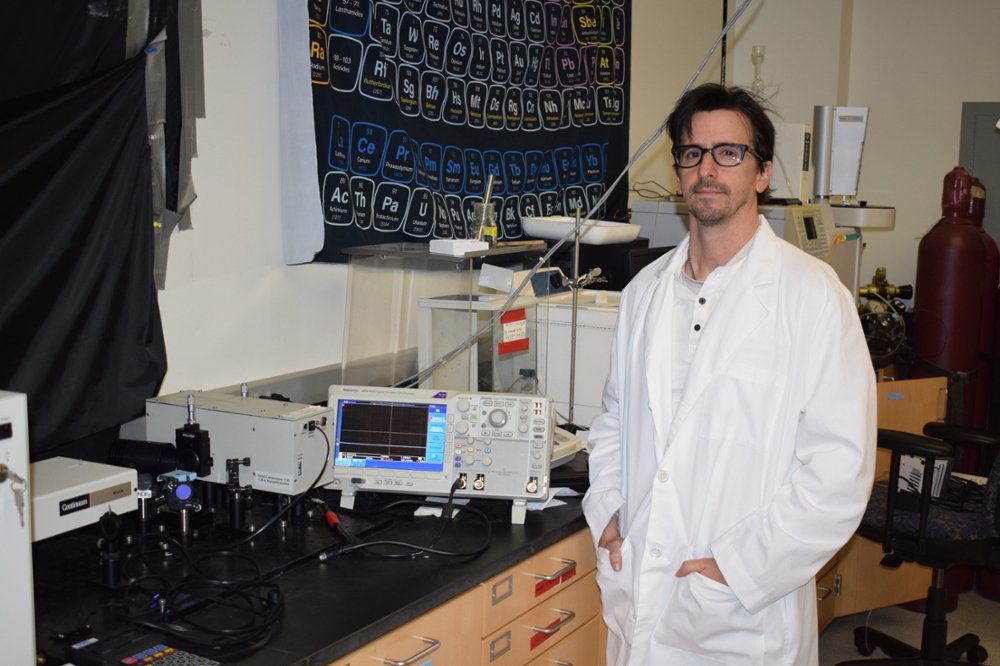With $300,000 NSF grant, Rowan professor is developing brand-new biomaterials
With $300,000 NSF grant, Rowan professor is developing brand-new biomaterials

Biotechnology is a crucial field of research. It has the power to enhance the efficacy of antibiotics, devise new systems for delivering medications within the body, harness biological processes for applications beyond biology and medicine—and so much more.
Dr. Timothy Vaden, associate professor in the Department of Chemistry & Biochemistry at Rowan University, has a plan to help stabilize the proteins used in biomaterials. His work could, in turn, stabilize research efforts conducted across fields like chemistry, biochemistry and bioengineering.
Stopping researchers’ key proteins from unfolding into 'useless strings'
Proteins are most effective in water at room temperature, said Vaden. Yet some of the most innovative bioengineering applications researchers are working on can only be explored through high-temperature processes. When exposed to these high temperatures, Vaden said, the proteins “unfold into useless strings” – unless researchers can stabilize them in some way so that they remain active and able to be experimented on, even at high temperatures.
That’s where ionic liquids, the focus of Vaden’s three-year, $300,000 research grant from the National Science Foundation (NSF), come in. Ionic liquids are a type of liquid salt compound that Vaden, the principal investigator on the project, plans to use as selective protein-stabilization biomaterials.
The new ionic liquids Vaden and colleagues and students are designing can stabilize only the proteins they need for use in these experiments without affecting other, undesired proteins. Specifically, the research targets the proteins involved in bacterial denitrification – the conversion of nitrates in the environment into nitrogen gas for the atmosphere. Vaden hopes that these new biomaterials will help chemists and engineers be better equipped to perform groundbreaking new protein applications in the future.
A three-laboratory team effort
“This project will combine the research efforts of three different labs to grow proteins, study the effects of ionic liquids on their structures, and run computer simulations to interpret the results,” Vaden said. Undergraduate students will perform the research under the guidance of Vaden and the other faculty members.
Among the most exciting aspects of the project for Rowan undergraduate students is the opportunity to gain firsthand cross-disciplinary laboratory experience in experimental biochemistry, physical chemistry and, now, computational simulations.
Two students will work directly with Vaden, while his colleagues and co-principal investigators, associate professor Dr. Gregory Caputo and assistant professor Dr. Chun Wu, will each lead their own teams of two students. Each team has a unique role to play in the research. The students working with Vaden will do the experiments, Caputo’s team will grow and purify the proteins and Wu’s team will perform computer simulations to interpret the experiments. The professors are faculty members in the College of Science & Mathematics.
“The students working on this project are going to get a lot of real-world experience in growing and purifying proteins, learning about protein stabilization, running computer simulations, and understanding the collaborative interdisciplinary nature of modern science,” said Vaden. “These projects have a lot of opportunity to both design new protein stabilization biomaterials and learn a lot about how the biomaterials affect the protein structures and energies.”